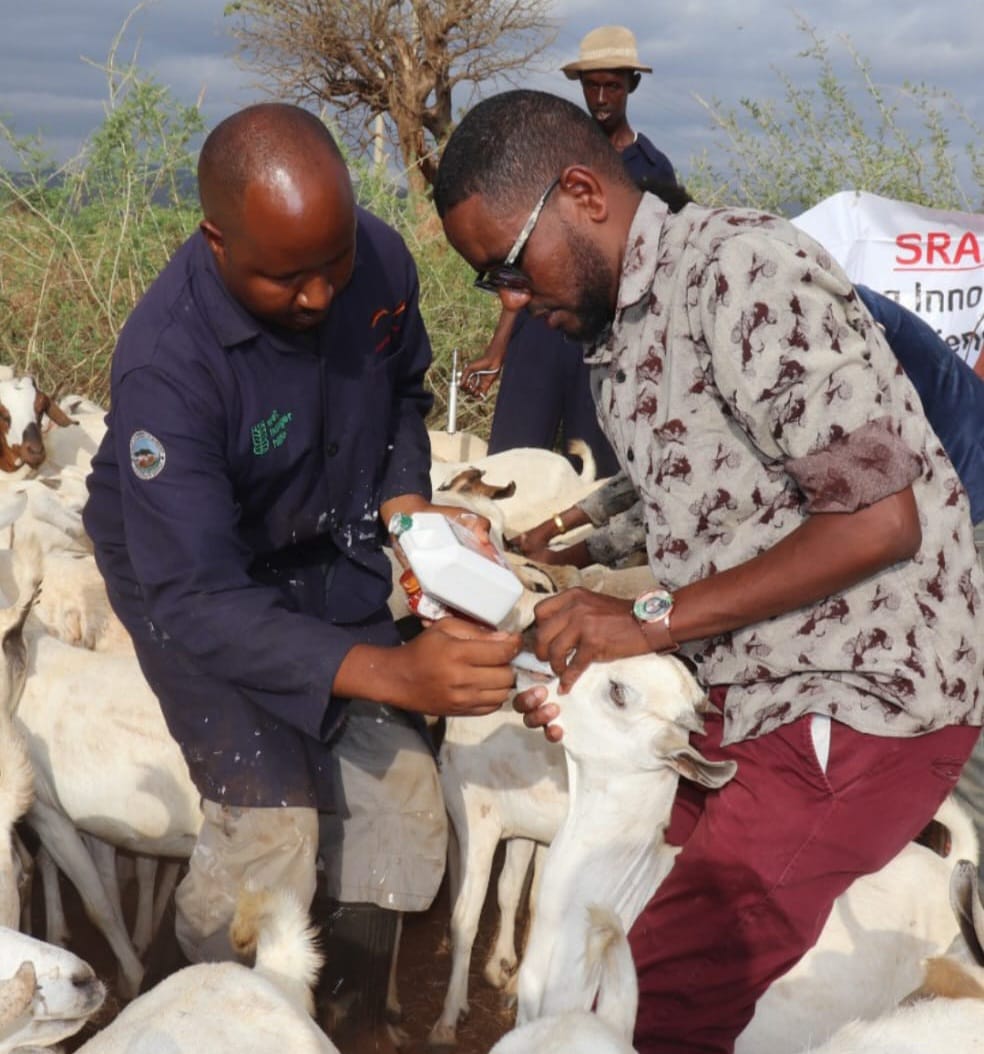
When drought swept across Marsabit County in 2022, the toll was catastrophic. In the villages of Antut and Qoloba in Moyale Sub-county, entire livestock herds were wiped out, leaving many households with no source of food or income.
Children, the elderly, pregnant, and lactating women were most at risk of malnutrition. As desperation grew, so did the tension between the Borana and Gabra communities. The two communities have a history of inter-communal conflict where they raid each other’s manyatta and get away with livestock.
Amid the despair, a restocking initiative brought a glimmer of recovery. To stabilize pastoralist livelihoods and support peaceful coexistence, Welthungerhilfe (WHH) through SRAPLEA 2 project and with funding support from the German Federal Ministry for Economic Cooperation and Development (BMZ), supported PACIDA to distribute small livestock specifically, drought-resistant hybrid goats to affected households.
“Restocking was selected because the two villages are purely pastoralist communities with strong cultural and economic reliance on livestock,” says Mamo Malate, PACIDA’s Project Manager.
The two communities had also championed for peace and showed willingness to rebuild, which was another contributing factor for the project to be implemented.
The project prioritized a collaborative approach. Site and beneficiary selection involved community elders, government livestock officers, and local administrators.
Public forums were held to sensitize the community and identify the most vulnerable families; including those without any livestock, orphan-headed families and those with members living with disabilities.
A total of 140 goats were distributed; 70 in each village, with each beneficiary receiving three goats, and two households receiving four. This followed Ministry of Agriculture and Livestock guidelines for restocking.
For Abshiro Dalacha, a mother of three in Qoloba village, the goats brought a new beginning. “I was selected by elders because I had no livestock. I received three goats. All of them gave birth and now I have five, though one kid didn’t survive,” she said.
Dalacha now milks two of the goats. “We use the milk at home, and I sell the rest to my neighbours at Ksh. 100 per litre. It has helped my children to stay healthy,” she adds.
In nearby Antut village, Galgalo Guyo had lost nearly everything; 40 goats, 10 camels, and 20 cows during the drought. Water sources remain far. “If we don’t get assistance from government, we walk 17 kilometers to Qoloba for water,” he says.
Guyo who has a family of eight, received three goats through the project. “It has helped us stabilize. I now have milk and if a financial need arises, I can sell the young ones,” he said.
As a community-based coach, Guyo tracks the herd progress from birth and death to health alerts. “I do regular checks. If any sign of disease emerges, I advise families on what action to take.”
The goats have become a step toward recovery and peacebuilding. “Now, you can walk through the village and see goat sheds that were once empty, occupied again,” says Guyo.
In both Antut and Qoloba, the restocking program has helped reduce dependency, while strengthening community cohesion. Families are once again able to access milk and sell animal for basic needs.
Visit Us
Marsabit Kenya
pacida@pacida.org
Call Us
+254 (0) 20 265 6947
About Pacida
The Pastoralist Community Initiative and Development Assistance (PACIDA) is a development and relief organisation that empowers pastoralist communities through sustainable community-driven development interventions.
PACIDA was founded in 2008 by local scholars and development practitioners who were concerned about the huge and widening humanitarian needs, deepening vulnerabilities and huge development gap in its target region.
Contact us
Postal Address: PO Box 333-60500, Marsabit, Kenya.
Email: pacida@pacida.org
Hotline: +254 (0) 20 265 6947